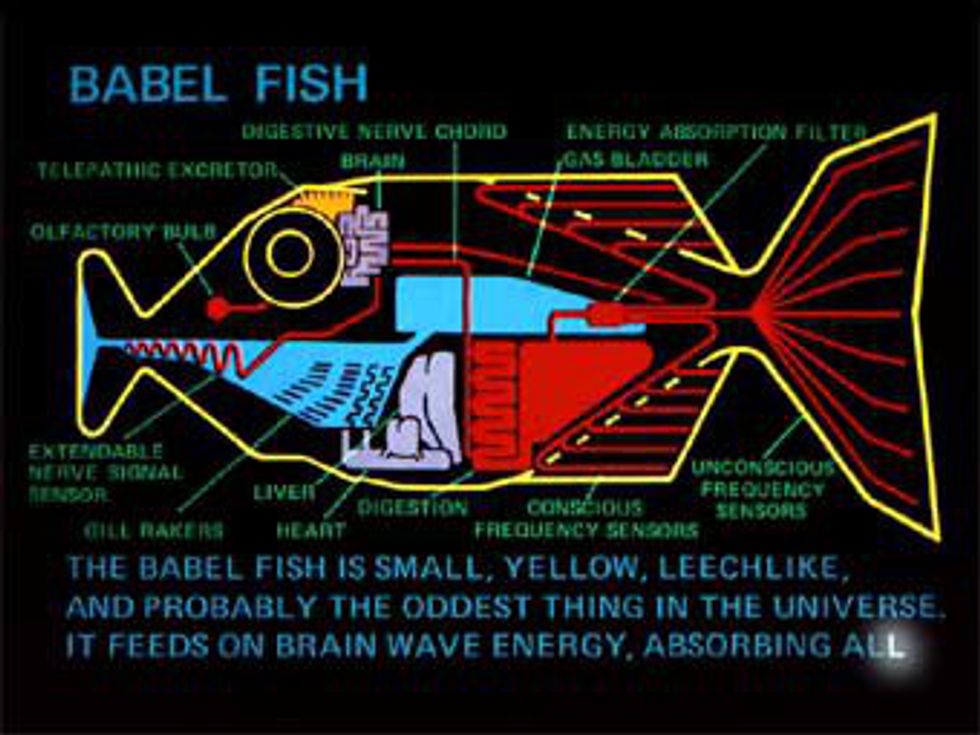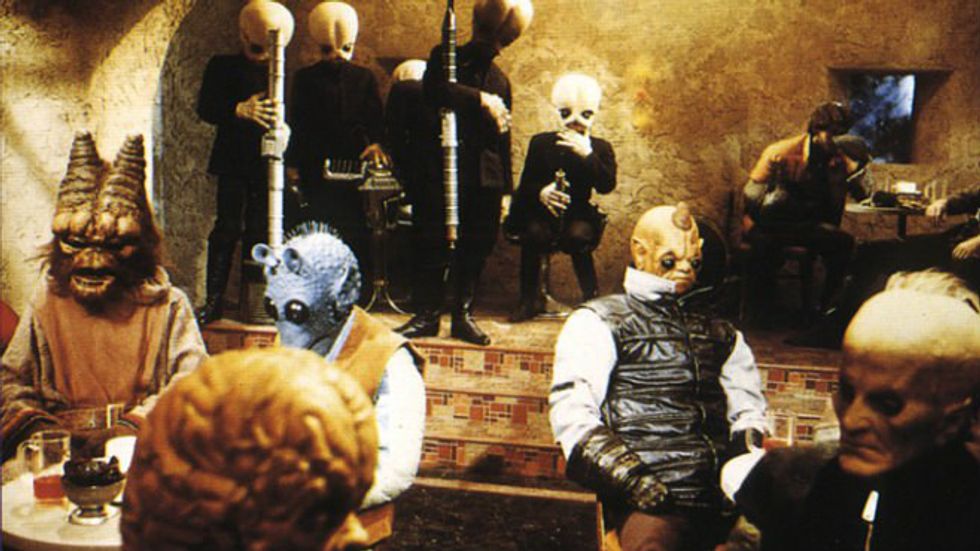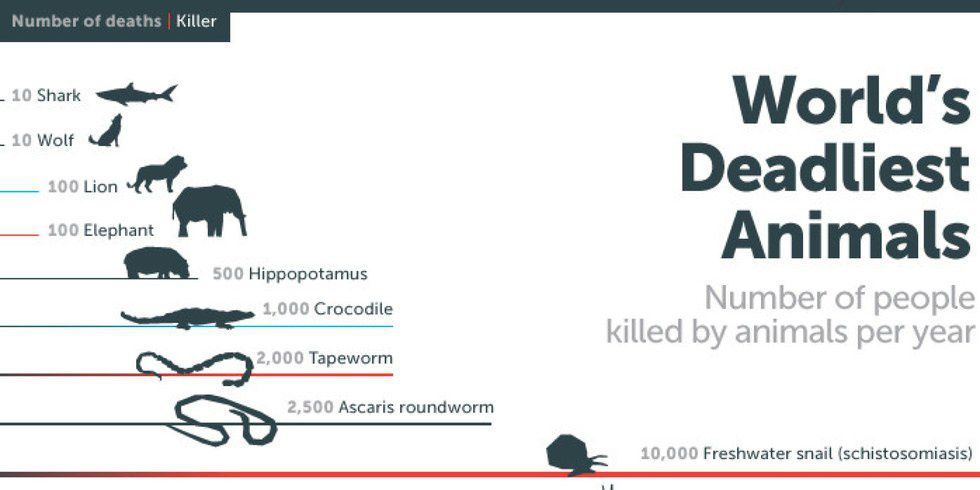NASA has announced the production of a new telescope with around 100 times the power of the Hubble Space Telescope, and the hope for this new telescope is that they might find evidence of extraterrestrial life.
Or maybe not specifically to discover other intelligent life—the purposes that NASA states on their website include the investigation of dark matter, dark energy, and the creation of the universe—but that's not to say we aren't always searching for other planets capable of supporting life anyway. When you think about it, our existence is kind of lonely; we're the only kids on our block, and we haven't found anyone else to talk to about anything. It doesn't even matter if we like the same things: after years and years of isolation, I think maybe as a species we're eager and anxious to find, like Tarzan says, strangers like us.
Speculative fiction has both warned and encouraged us about pursuing a relationship with other intelligent life. Ray Bradbury's “Martian Chronicles” are short stories about the dangers of any attempt to colonize a new world—why doing so would be, ultimately, a poor decision on mankind's part, and how we can't know that any alien life we find would be nearly as receptive towards us as we want to be towards them. Meanwhile, we're encouraged to if not interact with (as it'd be a violation of the Prime Directive) then at least observe alien life when hanging out with Captain Kirk.
So we're finally reaching a point where maybe at least knowing that we're not alone is possible. Here are a few things to consider when we meet new life, if sci-fi has taught us anything.
1. We might not be able to understand them.
Maybe an ear bug will have been created, and we'll be able to communicate a little bit, but we can't assume we'll be able to do much. We might not even look alike, so pantomiming might not work, either.
2. They could be really, really, ridiculously good looking.
In which case, we'd have to worry about dribbling our coffees all over ourselves like we do when suddenly confronted with our unattainable objects of affection. In this case, it's no different from meeting a hot traveler who speaks a language you don't understand. Who hasn't been there?
3. They could be really, really, ridiculously unattractive.
I'm talking eggmen. I'm talking tentacles. I'm talking any of the aliens in the Mos Eisley Cantina in “Star Wars.” Don't stare.
4. They might not know anything about their own culture and history.
Or maybe that's a distinctly American thing. I know if you asked the average Science Man about the Whiskey Rebellion, he might not actually know what you're talking about. In any case, we can't assume that the average Extraterrestrial will know about plant biology from back home.
5. They could try to kill us.
But, LMAO, what doesn't, am I right? Even on our own planet, there are over 1,000 ways to die, and a lot of them come from other species.
We have evidence to support the hypothesis that, at one point, Mars may have sustained life. Unfortunately for us, that evidence points to bacteria (gross, but also pretty basic and known for surviving The Worst climates ever) or various strains of fungus (which, admittedly, wasn't found on Mars, but was able to survive Mars--like climates in a controlled laboratory setting—and Massachusetts over the past weekend). Some people think that Jupiter's moons might have some kind of marine life living under their ice-encrusted surfaces. Even if that's the case, until we figure out a long-term solution to radiation sickness, we're probably not going to be vacationing on Ganymede.
In any case, there's not a lot of intelligent life in our solar system—or, at least, life we can talk to because that whole “humans are intelligent” supposition is debatable—so our only hope now is to reach outside. Even if we do find life on another planet, the chances of us reaching them within our lifetime is slim, though NASA has allegedly been working on a “warp drive” not unlike the one in Star Trek, and maybe seeing that there's life out there will convince people that space travel is important.
That being said, maybe First Contact will happen in this century. I know I'm looking forward to meeting some Vulcans.



























